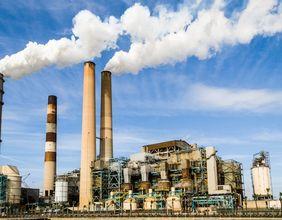Pakistan finds itself ensnared in a precarious web of debt, with a 71% debt-to-GDP ratio highlighting the fragility of its economy. Currently, the country is grappling with significant energy debt, originally borrowed from China for the development of the China-Pakistan Economic Corridor (CPEC).
Prime Minister Shahbaz Sharif, speaking at the World Economic Forum, referred to this debt trap as Pakistan’s “death trap.”
Despite consistent efforts by officials to reschedule loans, these actions have merely postponed the inevitable. The question remains: Is Pakistan trying to escape the inescapable?
In a recent development, Pakistan’s Federal Finance Minister, Mohammad Aurangzeb, embarked on a three-day visit to China to request the rescheduling of $15 billion worth of energy loans. The country is desperate to find a way to manage its financial obligations and delay immediate repayments.
The Ministry of Finance has revealed plans to form a joint working group between Pakistan and China to streamline the rescheduling process. The discussions will not only address China’s energy circular debt, which stands at PKR 500 billion, but also cover current initiatives and advancements related to CPEC and other joint projects.
This collaborative effort aims to find a sustainable solution to Pakistan’s debt crisis, though the long-term effectiveness of such measures remains uncertain.
‘This exploitation must end’
China owns some of the power plants currently operating in Pakistan. These power plants were set under conditions that are now hurting Pakistan. The capacity payments, which are paid to power plant owners when the government isn’t taking electricity from them, have become a controversy lately.
Dr Gohar Ejaz, former Interim Commerce Minister, has stated that the Federation of Pakistan Chambers of Commerce and Industry (FPCCI) will file a formal petition to challenge the agreements with Independent Power Producers (IPP) in the Supreme Court.
While sharing the data from NEPRA, Dr Ejaz posted on X.
Dr Ejaz warned that Pakistan must break free from the cycle of repeating the same mistakes all over again of facilitating a niche of investors to profit without contributing.
“This exploitation must end,” he concluded.
Is there a way out?
The complexities of Pakistan’s current debt situation expose the stark reality: while this outrage will make noise domestically, it will likely fail in shaking China’s determination.
This stance may pressurize local entities into accepting public sentiments but will face hurdles in the case of Chinese-backed IPPs. The big question is: Does Pakistan wield adequate influence to renegotiate agreements with China?
Possibly not.
Shielded by international agreements and sovereign guarantees, these contracts are hard to cancel through an executive order.
Even though the Supreme court can easily nullify these contracts, it will be hard to deal with the repercussions if the matter goes to international courts. This basically means no matter how much noise Pakistan makes, China won’t have to budge.
The situation is alarming and shows how bad of a debt trap Pakistan is in. The country recently signed a staff level agreement with the IMF for further aid but the company seems to be sinking deeper and deeper as these loans become impossible to pay back.
The post Pakistan seeks relief from $15 billion Chinese energy debt amid economic crisis appeared first on Invezz





